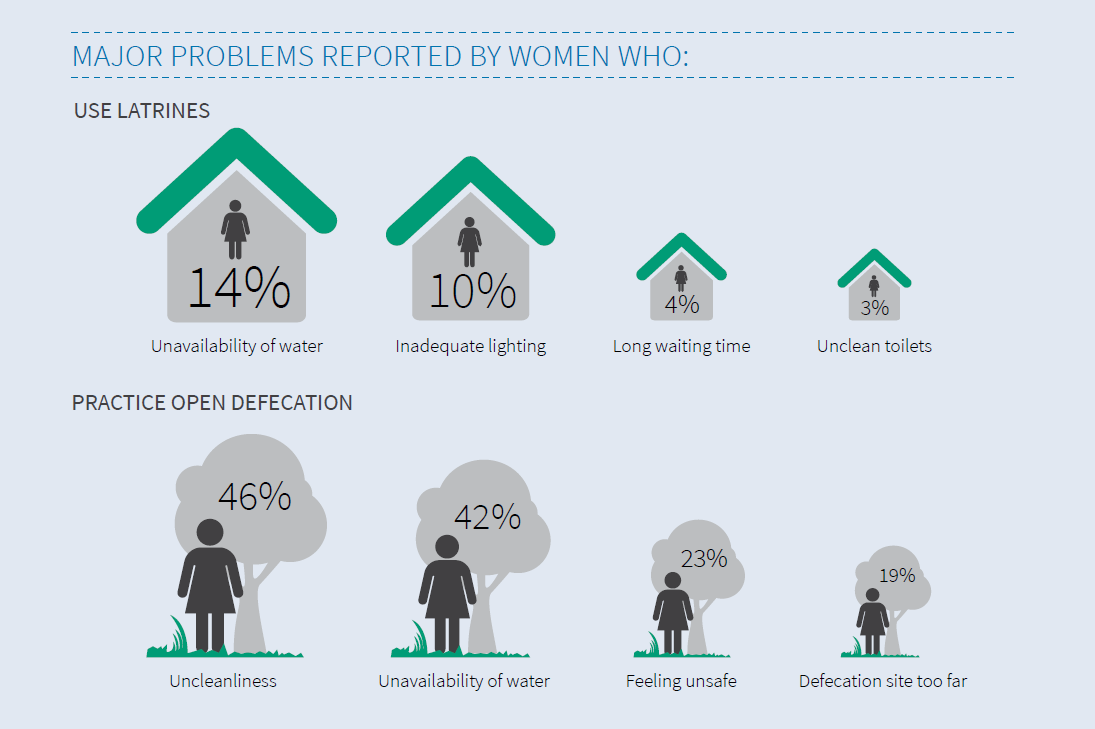WASH Coping Strategies

About
The second in a series of four SHARE-WSSCC co-funded studies, this project sought to identify the coping strategies used by women in Maharashtra, India, to deal with inadequate WASH facilities. It specifically focused on the perceived adequacy of WASH-related resources, stress from inadequate resources and access, and the experience, practice and materials used for MHM.
In so doing, the study identified local conditions, priorities and needs, and thus provides essential information to guide development that is sensitive to WASH-related priorities for women.
Specifically, it found that 9% percent of study households and most seasonal migrant women workers lacked access to toilet facilities at household level, and that public places such as markets and transportation hubs often lacked adequate sanitation facilities. The major problems reported by women who used latrines were unavailability of water, inadequate lighting, a long waiting time, and unclean toilets. Whereas, the major problems reported by those practising open defecation were uncleanliness, unavailability of water, feeling unsafe, and the defecation sites being too far. Indignity, shame and embarrassment due to lack of privacy were significant sources of stress related to open defecation.
Furthermore, user of shared toilets and those practising open defecation more often reported employing unhealthy strategies to cope with limitations from inadequate sanitation. These included: delaying relief, and drinking and/or eating less.
According to the interviewed women and on-site observations, WASH installations in health facilities are generally acceptable in private facilities while improvements are needed in some government facilities. Women expect WASH installations in health facilities, and view their quality in a broader framework of ‘cleanliness,’ which they consider when choosing facilities.
